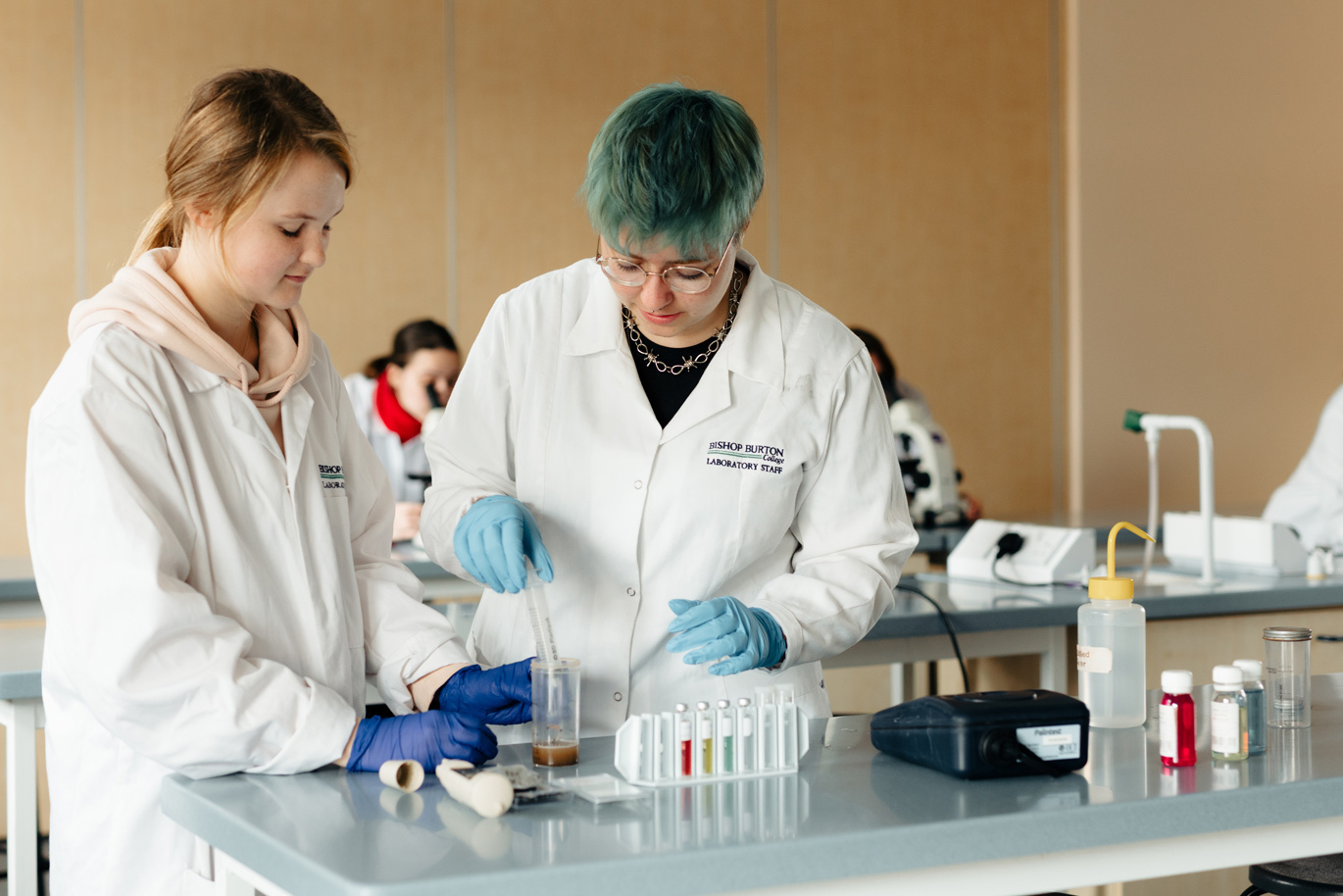
Jump to
Subject
Animal Sciences
Level
Master's Degree (Level 7)
Duration
1 year full-time/2 years part-time
Start Date
September 2025
The course
Do you want to take your knowledge of animal behaviour and welfare to the next level?
Do you want to develop the skills to undertake robust animal welfare assessments?
Do you want a comprehensive and critical understanding of the ethical, legal and welfare issues related to animal welfare?
Then our unique Masters programme will equip you with the knowledge and skills to stand out in an increasingly populated field.
Course Information
- To develop an analytical and comprehensive understanding of animal welfare in society and the controversial ethical consideration within a range of situations.
- Allow you to select and utilise appropriate measures to monitor and assess animal behaviour and welfare, which is underpinned by current theory and accurate application of scientific techniques.
- To ensure that you are independent thinking and can communicate confidently and effectively within a professional and research context.
- Enable you to obtain analytical and systematic thought processes appropriate for working and researching within the animal and related industries.
Year 1
- FULL TIME (credits):
- Research Methods (20)
- Animal Behaviour Theories (20)
- Health, Welfare and Ethics (20)
- Animal Welfare Across Contexts (20)
- Applied Animal Welfare (20)
- Human-Animal Interactions and Psychology (20)
- Independent Research Project (60)
- PART TIME YEAR 1 (credits):
- Research Methods (20)
- Animal Behaviour Theories (20)
- Health, Welfare and Ethics (20)
- Animal Welfare Across Contexts (20)
Year 2
- PART TIME YEAR 2 (credits):
- Applied Animal Welfare (20)
- Human-Animal Interactions and Psychology (20)
- Independent Research Project (60)
You will need:
A minimum of a 2.2 honours degree, ideally in biological science subjects or equivalent, but work experience can be taken into account if an unrelated qualification is held.
An appropriate academic reference
Life and/or experience of non-traditional students will be taken into account when considering applications. The successful completion of an entry task may be required when considering applications without the required formal entry qualifications.
If your first language is not English, or a Tier 4 student visa to study is required and GCSE English at grade 4/C or equivalent is not held, you will need to evidence your English language proficiency level, such as International English Language Testing System (IELTS) 6.0 overall (with a minimum 5.5 in each skill).
This programme is delivered with a variety of learning and teaching approaches to include all students learning styles and preferences.
For all modules, theory lectures are delivered that aim to deliver the core content and provide the underpinning knowledge. Using the webinar software, staff are able to monitor engagement to ensure participations.
To complement all theory lectures, you will have asynchronous seminars that are used to reinforce concepts delivered theoretically. Online webinars focus on facilitating a student-centred approach to enhance the independent learning that takes place outside of the webinar lecture sessions.
2025-26 ENTRY
Full-Time:
You will study four modules in the first semester (two evenings, 3 hours teaching between 6-9pm) and two in the second semester (one evening, 6-9pm), alongside completion of the Independent Research Project. This represents approximately six hours of live webinars per week plus a similar amount of time dedicated to directed tasks and tutorials.
Additional to this you will book individual tutorials with your Programme Leader. You will have four individual tutorials in an academic year.
Attendance is required at four block sessions throughout the year. For three of these, attendance is encouraged onsite at University Centre Bishop Burton. However alternative provision will be offered if you are unable to attend. One session will be online only.
These dates for the 2025/26 academic year are as follows:
- Thursday 18 - Saturday 20 September 2025 onsite
- Sunday 12 October 2025 online attendance only
- Saturday 15 & Sunday 16 November 2025 onsite
- Saturday 28 February & Sunday 1 March 2026 - onsite
Students must also be available during the week of 25 May 2026 (Tuesday Friday) to deliver their Independent Research Project presentations online.
You are expected to complete a significant amount of private study in addition to class time and directed study (approximately 20 - 40 hours per week).
Part-Time:
You will study two modules per semester except during the final semester when the focus is on completion of the Independent Research Project. This represents approximately three hours of live webinars per week plus a similar amount of time dedicated to directed tasks and tutorials. Webinars run one night per week.
In the first year, attendance is required at two block sessions throughout the year. In person attendance is encouraged onsite at University Centre Bishop Burton. However alternative provision will be offered if you are unable to attend.
These dates for the 2025/26 academic year are as follows:
- Thursday 18 - Saturday 20 September 2025 onsite
- Saturday 28 February & Sunday 1 March 2026 - onsite
There will be two block sessions in the second year plus one week where students need to be available to deliver their Independent Research Project presentation. Dates will be confirmed towards the end of your first year but are likely to be around October 2026, November 2026 and May 2027.
You are expected to complete a significant amount of private study in addition to class time (approximately 10 - 20 hours per week).
- Regular access to a computer with a reliable broadband internet connection in order to participate in webinars, download learning materials, watch recorded webinars and submit assignments.
- A headset with microphone will be required for participation in webinars and on-line tutorials.
- Appropriate software is required: Microsoft Office and OpenOffice (freeware) are the only office suites supported.
- Sturdy footwear suitable for practical sessions.
- The college has a strict policy of not allowing work boots inside college buildings you will need to have alternative footwear (shoes or trainers) to attend lectures and tutorials.
- A wide range of resources are available for use both on and offsite for dissertation projects but it may not be possible to purchase/service all requests, therefore students need to be aware that they may need to self-fund some elements.
- Students will need to fund their own travel, accommodation and food.
- For any student that requires the use of an assistance dog, prior arrangements must be made with the Programme Leader to ensure suitable facilities and provision is made. Appropriate insurance must be held and evidenced before your dog is permitted onsite.
- On successful completion of the programme, you will have the opportunity to graduate at a ceremony wearing formal dress. The hire of the formal dress is an additional cost.
Validated by University of Hull
We are proud to collaborate with University of Hull on the validation of this course.
This includes transforming our programmes to ensure that we meet the evolving needs of the sector, giving you the best opportunities for success when you graduate by having a competence-based focus. Find out more about competence-based higher education.
View the policies and procedures you would be agreeing to comply with by registering for this programme. This encompasses University of Hull Quality and Standards, including a Guide for Collaborative Provision students.
Financial Information
Find the full details of the fees associated with this programme and the financial support available.

